Sylvia Plath and Trans-Atlanticism
one-day symposium
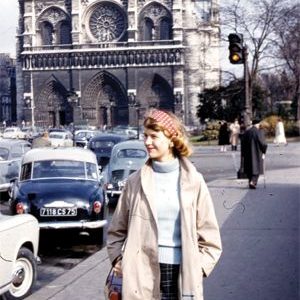
Symposium Blurb
Join us for an one-day symposium celebrating Sylvia Plath as a writer of trans-Atlantic importance, and interrogating the role international travel, education, politics, and literature played in her development as a poet, teacher, and cultural touchstone.
Department of American Literature and Culture, School of English, Aristotle University of Thessaloniki, Greece, and Fulbright Foundation in Greece.
-
Date
May 20, 2022
-
Venue
Amphitheater II - Research Dissemination Centre AUTH
Featured speakers
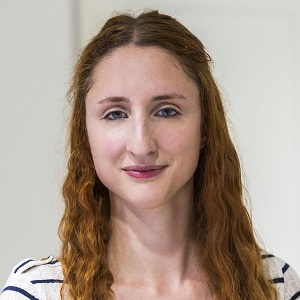
Julie Irigaray
Julie Irigaray is an English Literature PhD student at The University of Huddersfield. Her research focuses on Sylvia Plath’s complex relationship with England and her transnational identity as an American writer with strong European connections. Her thesis is going to be the first book-length study dedicated to Plath and transnationalism. She was educated at Université Paris Cité, King’s College London and Trinity College Dublin. Her forthcoming publications include a book chapter on the contemporary British writer Max Porter, and an article on Sylvia Plath and France.

Gail Crowther
Dr. Gail Crowther is a freelance writer, researcher, and academic currently working on a number of solo and collaborative projects. Her latest book, Three-Martini Afternoons at The Ritz, is a dual biography exploring the social rebellion of Sylvia Plath and Anne Sexton. It was published by Simon & Schuster, New York, in April 2021.
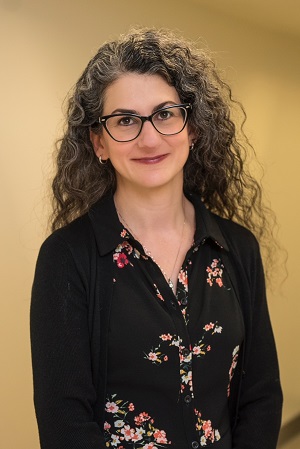
Janet Badia
Dr. Janet Badia Dean of the College of Liberal Arts and Professor of Women's Studies at Purdue University, Fort Wayne. She is the author of Sylvia Plath & The Mythology of Women Readers (University of Massachusetts Press).
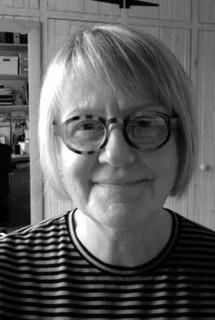
Di Beddow
Di Beddow wrote her PhD dissertation on the Cambridge period of Sylvia Plath and Ted Hughes at Queen Mary University London. Her particular interest is in place and poetry. She is a Cambridge resident and a retired English teacher. She has published work on the English and Drama blog for the British Library and in The Ted Hughes Society Journal. She has also published on the Rose Library’s Scholar Blog after gaining an Emory University researcher’s award.
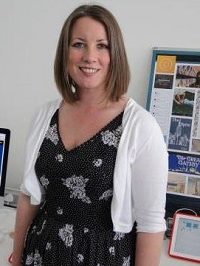
Nicola Presley
Nicola Presley is Senior Lecturer in English Literature at Bath Spa University. She has published work on Sylvia Plath, Anne Sexton, William Golding and Ted Hughes and is currently working on her first monograph on Plath and Sexton. She is the Publicity and Media Manager for William Golding Limited, and Assistant Editor of Irish Studies Review.
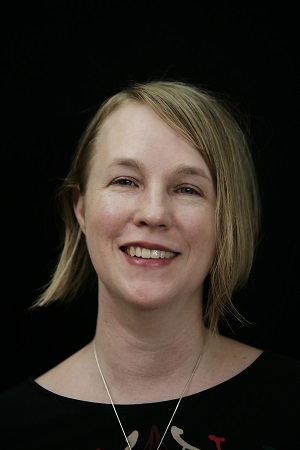
A. E. Stallings
A. E. Stallings is a poet and translator who has lived in Athens since 1999. Her most recent collection of poems, Like, was a finalist for the Pulitzer. She has received a translation grant from the National Endowment for the Arts, and fellowships from the USA Artists, the Guggenheim, and the MacArthur foundations. A selected poems is forthcoming from FSG in the US and Carcanet in the UK in December of this year. Her poems and prose appear widely in such journals as the Times Literary Supplement, the London Review of Books, the Hudson Review, the American Scholar, and the Wall Street Journal.
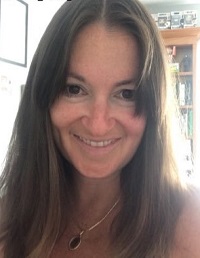
Emily Van Duyne
Emily Van Duyne is Associate Professor of Writing at Stockton University. A 2022 Fulbright Scholar at Aristotle University of Thessaloniki, her book LOVING SYLVIA PLATH is under contract at W.W. Norton & Co. Other work has appeared recently in American Poetry Review, Harvard Review, Women's Studies Quarterly, and Literary Hub. In 2020, she was awarded a research fellowship from Emory University's Stuart A. Rose Rare Book and Manuscript Room.
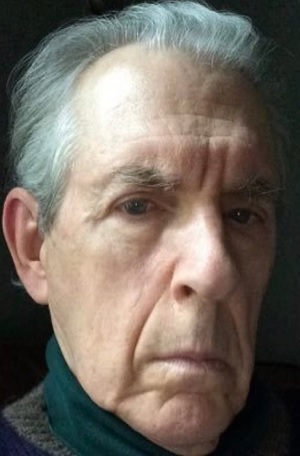
Carl Rollyson
Carl Rollyson is the author of American Isis: The Life and Art of Sylvia Plath; The Last Days of Sylvia Plath; forthcoming: Sylvia Plath Day by Day, volume 1 and 2; The Making of Sylvia Plath.
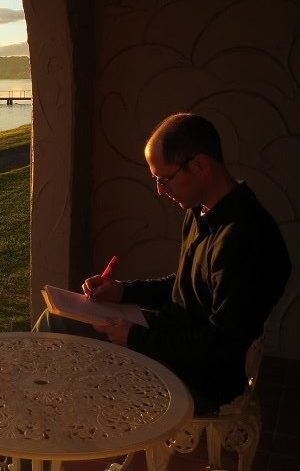
Peter K. Steinberg
Archivist Peter K. Steinberg co-edited, with Julie Goodspeed-Chadwick, The Collected Writings of Assia Wevill (LSU Press), the 2022 winner of the Susan Koppelman Award for the Best Anthology, Multi-Authored, or Edited book in Feminist Studies in Popular and American Culture. His article on Sylvia Plath's A Winter Ship (1960) is printed in the Spring 2022 issue of The Book Collector.
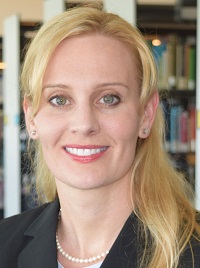
Julie Goodspeed-Chadwick
Dr. Julie Goodspeed-Chadwick is Indiana University-Purdue University Columbus's Chancellor’s Professor of English, the IU Bicentennial Professor (2019-2021), Affiliate Faculty in Women’s, Gender, and Sexuality Studies, and Director of the Office of Student Research. She is the author of Reclaiming Assia Wevill: Sylvia Plath, Ted Hughes, and the Literary Imagination and the co-editor, with Peter K. Steinberg, of The Collected Writings of Assia Wevill (both from LSU Press).
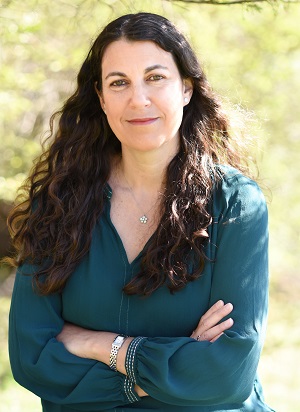
Heather Clark
Heather Clark is the author of three award-winning books on postwar poetry, most recently Red Comet: The Short Life and Blazing Art of Sylvia Plath, which was a finalist for the Pulitzer Prize, the National Book Critics Circle Award, and the LA Times Book Prize in Biography, and won the Slightly Foxed Prize for Best First Biography. Red Comet was a New York Times Top Ten Notable Book of 2021. She has held major fellowships from the National Endowment for the Humanities, the Leon Levy Center for Biography, and the British Library. Clark is Professor of Contemporary Poetry and Director of the Centre for International Contemporary Poetry at the University of Huddersfield in the UK, and a 2022-23 Guggenheim Fellow.
Abstracts
[1]Tracy Brain, “Your Puddle-jumping daughter: Sylvia Plath’s Midatlanticism”, English, vol.47 (Spring 1998), pp.17-39 and The Other Sylvia Plath (Harlow: Longman, 2001); Paul Giles, Virtual Americas: Transnational Fictions and the Transatlantic Imaginary (Durham and London: Duke University Press, 2002).
In 1955, Sylvia Plath travelled to England on a Fulbright scholarship to study at Cambridge University. While there she met and married Ted Hughes who originated from the county of West Yorkshire, a place packed with ancient literary history. On a visit to his family home, Plath encountered for the first time, Brontë Country. Open moorland, tumble-down farmhouses, ponderous, hardy sheep, and the setting for some of the most famous English novels of the 19th century. “There is no life higher than the grasstops,” Plath declared, as her Fulbright scholarship exposed her to a transatlantic literary world.
This paper will explore the multi-generational echoes across time and space. The traces of two women writers a century apart. There is much pursuit taking place. Plath following Emily Brontë as we follow Plath following Emily Brontë. A web of phantoms.
Haworth and Top Withens feature in several of Plath’s poems, letters, and journal entries along with pieces of published and unpublished prose. Most of her writing stresses the lonely and blustering nature of the place – blackened gravestones paving the ground in front of the Brontë Parsonage, withered trees, open moors of heather and sheep, a ruined building clinging to the moor side at Top Withens, supposedly the inspiration for Wuthering Heights. Drawing on theories of place, space, and abandoned buildings, this paper will explore how
Plath’s transatlantic experience fed into her writing and her understanding of places and literary residue. Plath certainly felt some thread of recognition at Top Withens, a feeling or atmosphere, traces from reading Wuthering Heights that led her to write, “And yet so strong were my impressions of the book, I felt at Withens that presence which endows places long loved and lived in with a radiance subject to no alteration or ruining by wind and rain.” The text of Wuthering Heights bled from the page, and Plath reached out to Emily Brontë’s traces in the ruins, appraising. This paper will explore what she found.
In a March 26, 1956 journal fragment reflecting on her day as a tourist in Paris while on holiday from her Cambridge studies, Plath describes her encounters with the people she meets and the “human rapport” she has with many of them. However, she concludes the entry by drawing a contrast between these examples of “rapport” and “the gauntlet of the Paris streets at night where men are always at the elbow.” In the wake of the #MeToo Movement, it is impossible to read such comments and not give them additional importance. As a description of the street harassment many women experience in their daily lives, the words easily read like a 21st C tweet, missing only the viral hashtags that have propelled sexual harassment and violence in all its many forms into the international spotlight in ways that have reshaped our collective consciousness. Focusing on Plath’s journals and letters from her time at Cambridge, this talk will explore the author’s reflections on street harassment, European men, and masculinities primarily through two lenses: first, through scholarship that has illuminated the impact of gender on one’s travel and experience of new places, including in the context of the study abroad experience and the history of women as travelers; and second, through theories of cultural difference and American imperialism, especially those theories that help us understand how the traveling subject is shaped through discourses of not only gender but of race, ethnicity, and nationality. Rather than attempting to resolve the tensions between these two lenses, this talk aims to unravel why the difficulties of reconciling them within Plath studies matters.
Hughes’s 1998 publication Birthday Letters broke his over thirty year silence on the death of his first wife, Sylvia Plath. Hughes had not originally intended to publish the poems, but saw them instead as a way of conjuring up the presence of his wife in order to have a ‘direct, private, inner contact with’ her (Hughes on accepting the Forward Prize for Birthday Letters in 1998). There are fifteen Cambridge-based poems in a collection of eighty-eight. These cover some of the key biographical events that the couple experienced in the university city. The poems are arranged largely chronologically as the experiences took place. ‘Fulbright Scholars’ opens the book with Hughes remembering a photo of the the new Fulbright intake, wondering if Plath were in the picture. In two ‘Caryatids’ poems Hughes recounts the attack on Plath’s first Cambridge poem published in a university magazine and in ‘St Botolph’s’ he describes the meeting at Falcon Yard, which then led to the courtship and marriage of the couple.
Birthday Letters also though tells us much about the couple’s lives and their environment in Cambridge beyond those early days and the relationship between the two poets. In an unpublished poem, ‘X’, originally intended for Birthday Letters, Hughes draws attention to an area just outside the centre of the city, close to Newnham College where Plath was based. This area Hughes says in his poem was ‘our place’ and it reveals a new understanding of Plath’s early poems such as ‘Winter Landscape with Rooks’ and paves the way to her writing development of the ‘psychic landscape’ which foreshadows late poetry in both Hughes’s and Plath’s work. A detailed interrogation of Hughes’s poems reveals a new understanding of Plath in Cambridge. She is both artist and poet of part of the city that has not been given significant recognition in her ‘short life’ or ‘blazing art’.
In 1958, Plath wrote in her journals of ‘[a] stink of women: lysol, cologne, rose water and gyclerine’ (J, 431). Plath’s feminine olfactory world here is dominated by Lysol and in this paper, I will explore her relationship with advertising culture of the mid twentieth-century and the hygienic demands placed on women’s bodies as an extension of the home. Advertisements like Lysol promoting itself as a vaginal douche and Lux’s ‘undie odor’ campaign serve to control women’s bodies, promoting the artificial over the natural, and deeming them unclean. By reading a selection of Plath’s poetry, including ‘Three Women’, ‘Gigolo’, and ‘Eavesdropper’, I will demonstrate how she rebels against this discourse and subverts the misogyny of the cultural field of advertising.
SYLVIA PLATH & PLATO concerns the influence of Plato’s dialogues on Sylvia Plath. Poems such as “Ariel,” “Elm,” “Totem,” “Tulips,” “Fever 103 Degrees” and many others will be deconstructed in light of Plath’s close reading of Plato while at Cambridge University, with special attention paid to the Republic, the Allegory of the Cave and the Crito. Plath’s Ariel poems deal with multiple Platonic ideas, like achieving purity; achieving a state of ultimate knowledge; the forms; and suicide. The Crito is essentially the narrative of Socrates’ suicide; some of Plath’s late poems were famously written within days of her death by suicide. Previous psychological or biographical studies have attributed this only to depression—new work by biographers like Carl Rollyson and Heather Clark have reframed Plath’s suicide as an act resembling something more like stoicism, or pragmatism, ideas explored by Socrates as he faces death by the state, but which he must achieve by drinking poison by his own hand. This paper will examine all of these topics.
Sylvia Plath left America for Great Britain and returned home with a set of political principles that made her both proud and critical of her native land. She welcomed her Fulbright as a way to get away from the United States and gain some perspective on it. At the same time, she relied on her American sensibility and anti-colonial convictions to criticize her host country during the Suez crisis. More attention needs to be paid to this crucial moment in history—hardly mentioned in Robin Peel’s book on her Cold War politics, or thoroughly investigated in biographies of her.
I write from the perspective of a Cold War Fulbrighter to Poland in 1979-1980 confronting an important moment in history: the seizing of American hostages in Iran and President Carter’s failed attempt to rescue them. My own experience, I believe, may yield some insight into the way Plath threaded her way through British politics and maintained what she believed to be the highest ideals of the Fulbright program.
During her two years at Newnham College, University of Cambridge, Sylvia Plath was prolific with her pens and typewriters. In addition to recommencing the writing of a journal, she wrote at least 240 letters, made numerous sketches, maintained several personal pocket and desk calendars, and composed dozens of poems and works of prose. This talk surveys the nearly two dozen works of prose that Plath wrote during her Fulbright term in three genres: short fiction, non-fiction journalism, and a book review.
In this presentation, I will gesture to the current biographical landscape of Plath studies in order to suggest how we might marshal current trajectories in biographical approaches in service of literary exegesis. We will explore examples that demonstrate that Plath’s life and work are neither linear nor unitary and that representation cannot be neutral; additionally, this presentation will emphasize that foregrounding inclusion, diversity, and multiplicity will enhance rather than reduce interpretations of texts, leading to ethical and responsible readings. Using Plath’s depictions of her honeymoon as exemplars, I will discuss her work across genres about this contested time to illustrate a feminist model of engagement with her life and work that exceeds a reductive generalization. Ultimately, this feminist track embraces biography and recasts it instead of moving beyond it; biography becomes a linchpin, a way into work that might seem inaccessible or impersonal, that engages and works in concert with other possibilities. Rather than being mutually exclusive, biography and traditional formalist approaches can mutually inform each other, thereby invoking all possibilities within the parameters of a text instead of limiting them, as I will demonstrate with readings of “Daddy,” “Ariel,” “Words,” and “Edge.”
We are used to seeing Sylvia Plath through an Anglophone lens, but Plath showed interest in international relations from the time she was a teenager. Plath’s correspondence with a German pen-pal; her high school writing on American foreign policy; her rejection of nationalism and war; her desire to live and travel in Europe; her love of Irish, French, and German literature; and her two-year association with the Fulbright Foundation all point to her deep engagement with a world beyond America and Britain. In this paper, I will give an overview of Plath’s underappreciated international outlook, and pay particular attention to her unpublished poem “I Am An American.”



